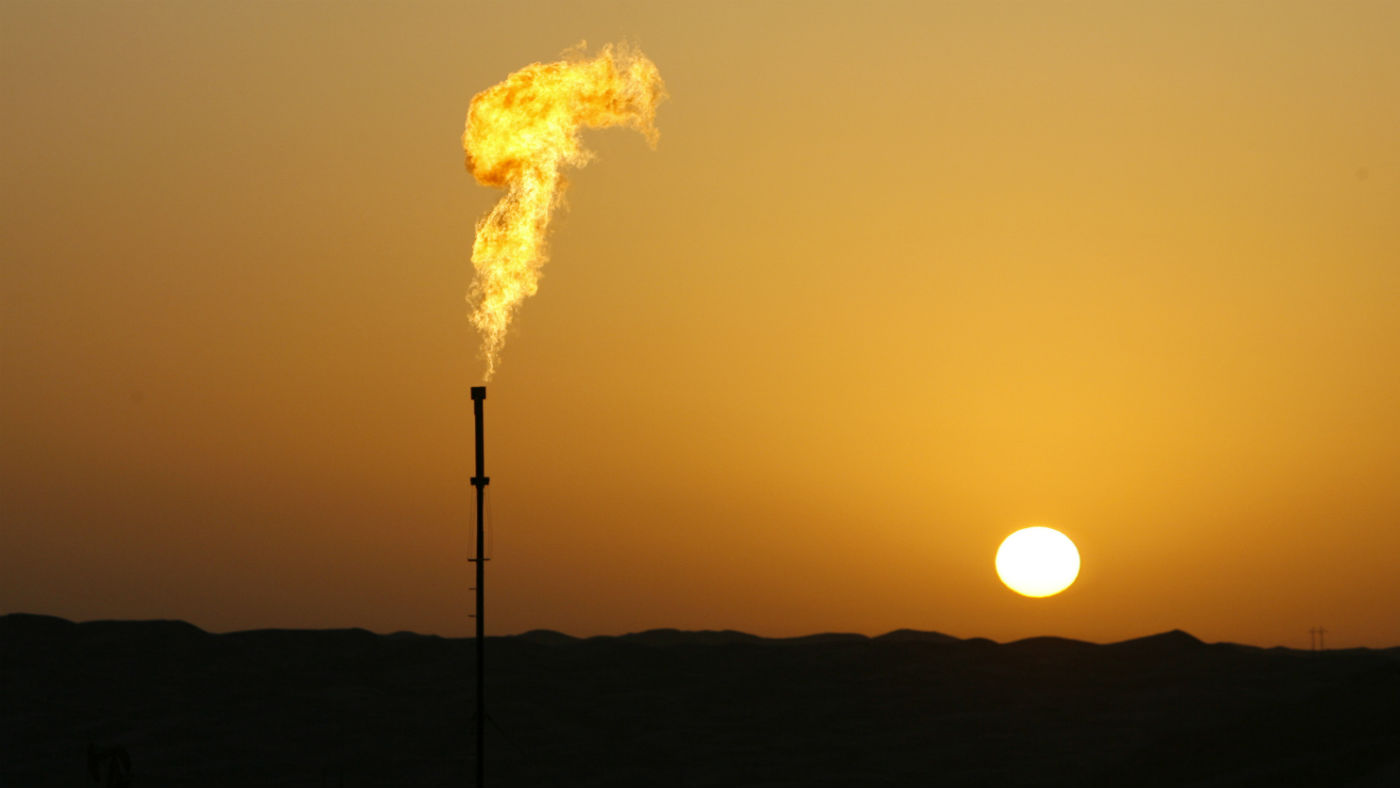Why Qatar is withdrawing from Opec
Doha denies that diplomatic dispute with Saudi Arabia is behind decision to leave cartel

A free daily email with the biggest news stories of the day – and the best features from TheWeek.com
You are now subscribed
Your newsletter sign-up was successful
Qatar has announced that it is withdrawing from the Organization of the Petroleum Exporting Countries (Opec) after 57 years of membership.
In a statement this morning, the oil-rich Middle East nation’s energy minister, Saad Sherida al-Kaabi, said: “Qatar has decided to withdraw its membership from Opec effective January 2019 and this decision was communicated to Opec this morning.”
The announcement comes just days before a conference of the 15-nation bloc of oil-rich countries. Al-Kaabi added that Qatar would still attend the meeting, in Vienna on Thursday and Friday, Reuters reports.
The Week
Escape your echo chamber. Get the facts behind the news, plus analysis from multiple perspectives.

Sign up for The Week's Free Newsletters
From our morning news briefing to a weekly Good News Newsletter, get the best of The Week delivered directly to your inbox.
From our morning news briefing to a weekly Good News Newsletter, get the best of The Week delivered directly to your inbox.
Opec accounts for around 44% of global oil production and 81.5% of the world’s oil reserves, and is often referred to as a cartel, owing to the significant impact its policies have on global oil prices.
Qatar will be only the second country after Indonesia, and the first from the Middle East, to voluntarily leave Opec since its founding in 1960.
Robin Mills, CEO of Dubai-based consultancy firm Qamar Energy, said the decision will probably come as “a disappointment for Opec because they’ve been trying to attract members”, reports CNN.
Qatar is the world’s biggest exporter of liquified natural gas, and claims that the decision to leave Opec was driven by a desire to increase its natural gas production further, from 77 million tonnes to 110 million per year.
A free daily email with the biggest news stories of the day – and the best features from TheWeek.com
Al-Kaabi explained: “We don’t have great potential [in oil], we are very realistic. Our potential is gas.
“For me to put efforts and resources and time in an organisation that we are a very small player in and I don’t have a say in what happens ... practically it does not work, so for us it’s better to focus on our big growth potential.”
However, some commentators believe Qatar may be leaving the bloc for diplomatic reasons.
For the past two years, the country has been embroiled in a bitter diplomatic dispute with Opec’s largest producer, Saudi Arabia, and has been the subject of boycotts by some Arab neighbours over allegations that Doha funds terrorist activities in the Middle East.
Announcing the withdrawal, al-Kaabi acknowledged that “a lot of people will politicise it”, but insisted: “I assure you this purely was a decision on what’s right for Qatar long term. It’s a strategy decision.
“We will make a big splash in the oil and gas business soon.”
The BBC notes that Opec is expected this week to agree to extend oil production cuts to ensure that prices do not drop too much in the coming months.
But al-Kaabi confirmed in his statement that Qatar Petroleum plans to raise its production capability over the next decade, from 4.8 million barrels of oil per day to 6.5 million - a move at odds with Opec’s plans.
Vandana Hari, founder and chief executive of Vanda Insights, told The National: “The nature of the animal as far as Opec is concerned is the bigger production capacity you have then the more weight you carry.
“If you aren’t on board with a tough decision, like to reduce - and Qatar was never in that position since it is a relatively small producer - you have no sway”.
-
 The Olympic timekeepers keeping the Games on track
The Olympic timekeepers keeping the Games on trackUnder the Radar Swiss watchmaking giant Omega has been at the finish line of every Olympic Games for nearly 100 years
-
 Will increasing tensions with Iran boil over into war?
Will increasing tensions with Iran boil over into war?Today’s Big Question President Donald Trump has recently been threatening the country
-
 Corruption: The spy sheikh and the president
Corruption: The spy sheikh and the presidentFeature Trump is at the center of another scandal
-
 Epstein files topple law CEO, roil UK government
Epstein files topple law CEO, roil UK governmentSpeed Read Peter Mandelson, Britain’s former ambassador to the US, is caught up in the scandal
-
 Iran and US prepare to meet after skirmishes
Iran and US prepare to meet after skirmishesSpeed Read The incident comes amid heightened tensions in the Middle East
-
 Israel retrieves final hostage’s body from Gaza
Israel retrieves final hostage’s body from GazaSpeed Read The 24-year-old police officer was killed during the initial Hamas attack
-
 China’s Xi targets top general in growing purge
China’s Xi targets top general in growing purgeSpeed Read Zhang Youxia is being investigated over ‘grave violations’ of the law
-
 Panama and Canada are negotiating over a crucial copper mine
Panama and Canada are negotiating over a crucial copper mineIn the Spotlight Panama is set to make a final decision on the mine this summer
-
 How oil tankers have been weaponised
How oil tankers have been weaponisedThe Explainer The seizure of a Russian tanker in the Atlantic last week has drawn attention to the country’s clandestine shipping network
-
 Why Greenland’s natural resources are nearly impossible to mine
Why Greenland’s natural resources are nearly impossible to mineThe Explainer The country’s natural landscape makes the task extremely difficult
-
 Iran cuts internet as protests escalate
Iran cuts internet as protests escalateSpeed Reada Government buildings across the country have been set on fire